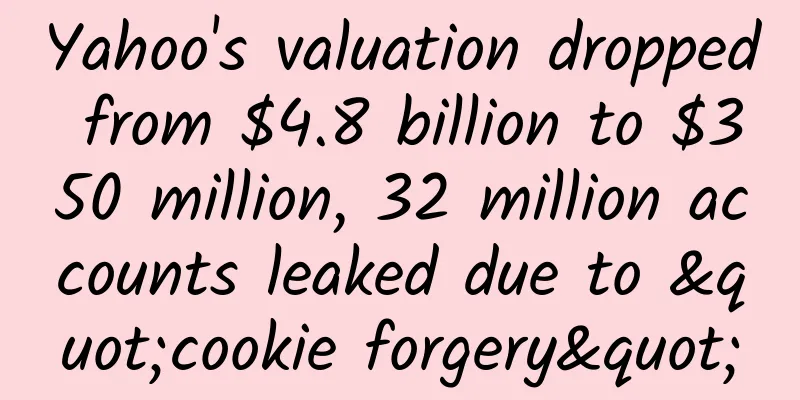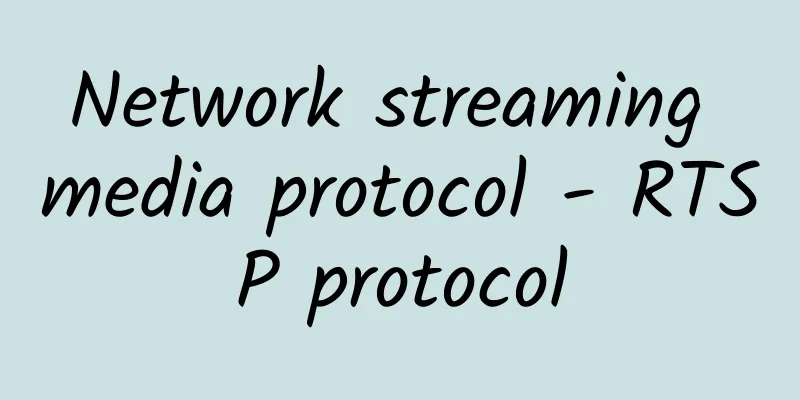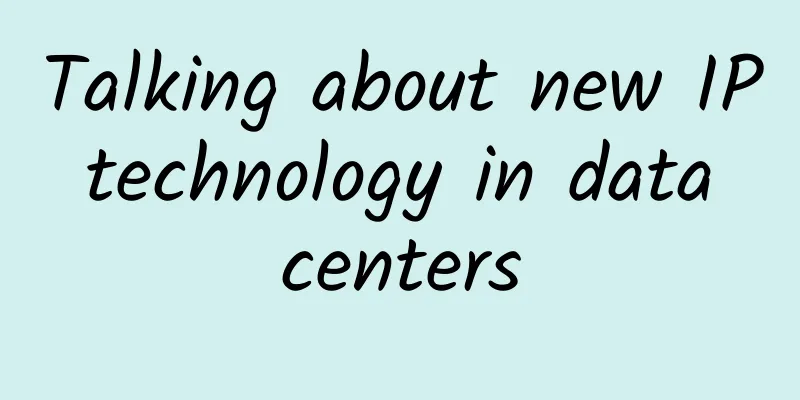Yahoo's valuation dropped from $4.8 billion to $350 million, 32 million accounts leaked due to "cookie forgery"

|
[51CTO.com original article] Yahoo's latest news shows that in the past two years, intruders have carried out "" attacks, resulting in the leakage of 32 million accounts. The information that may have been stolen from users includes names, email addresses, hashed passwords, phone numbers, birthdays, and some encrypted or unencrypted security questions and answers. . It should be noted that this leakage incident is independent and different from the two large-scale data leaks that broke out in the past few months (500 million accounts were leaked in September 2016, and 1 billion accounts were leaked in December). To make matters worse, Yahoo's series of security incidents have severely damaged Yahoo's credibility with users. Just last month, Yahoo was acquired by Verizon Communications at an ultra-low price of US$350 million, down from an initial valuation of US$4.8 billion.
Hackers from national backgrounds? Yahoo said in a regulatory filing on Wednesday that the cookie forgery incident was related to "hackers with a national background" and that the attackers behind the theft of 500 million Yahoo accounts in 2014 were probably the same group of people. Yahoo believes that an unauthorized third party accessed the company's proprietary code to learn how to forge the appropriate cookies. External forensics experts have determined that nearly 32 million accounts were attacked by cookie forgery in 2015 and 2016. Some of these intrusions are related to state-sponsored attackers associated with the 2014 security incident. What is a cookie forgery attack? Through cookie forgery attacks, attackers can access the victim's account without having to enter the password. Using forged cookies, the intruder does not need to steal the password, but only needs to forge a web browser token, i.e., a cookie, to trick the browser into believing that the Yahoo user is logged in. How do cookies prevent forgery? In order to save server-side resources, the user login information is generally saved on the client side. At this time, Cookies will be used. However, everyone knows that Cookies can be forged. How to prevent them from being forged? In fact, it is also very simple. You can add a userkey cookie, the value of which is userId or userName plus a fixed string on the server, and then encrypt it with MD5, MD5(userId+"mysite") or MD5(userName+"mysite"). When the server determines the authority, it first determines whether the userkey is correct. If it is correct, it will perform other operations. Doing so can largely eliminate the website security issues caused by Cookie forgery. Of course, if users feel that it is not safe enough and think that MD5 can be cracked, they can use multiple encryption methods, such as: sha, base64 and MD5 mixed use. It is difficult for hackers to calculate the userkey without knowing the user encryption algorithm and fixed string. [51CTO original article, please indicate the original author and source as 51CTO.com when reprinting on partner sites] 【Editor's recommendation】
|
Recommend
One cannot miss the key points of future data center development
Where will the data center of the future go? I be...
315 Gala: Mobile phone cleaning software pushes the elderly into the abyss of fraud
[[387787]] March 15 news: At tonight's 315 Ga...
Let’s talk about 5G dynamic spectrum sharing?
What is 4G/5G dynamic spectrum sharing? Why is 4G...
IoT Networks for 5G Massive Machine Type Communications (MMTC)
The concept of Internet of Things (IoT) is becomi...
WiFi optimization has tricks to surf the Internet without fighting
During the Dragon Boat Festival holiday, it is ne...
China Unicom's mixed ownership reform is the trigger for the restructuring of the telecommunications industry order
How will China Mobile and China Telecom respond t...
Why Wi-Fi will not disappear but become more important in the 5G era?
This article is reproduced from Leiphone.com. If ...
Where is the future in the post-5G era?
According to the latest news from the 3GPP offici...
HostXen: DIY cloud hosting available in Hong Kong, the United States, Japan, and Singapore, new user registration with coupons
HostXen is a DIY-configurable cloud server hostin...
Thoroughly understand computer network communication equipment and protocols
【51CTO.com original article】 Table of contents 1....
spinservers: US high bandwidth servers starting from $89/month, San Jose/Dallas data centers, 10Gbps bandwidth
spinservers recently released a new promotion pla...
Challenges facing data center network technology
The network is the most stable part of the data c...
Google says TCP congestion control algorithm BBRv3 performs well and will be submitted to the Linux kernel mainline this month
BBR (Bottleneck Bandwidth and Round-trip propagat...
How to understand 5G air interface (NR)?
The telecommunications industry certainly hopes t...
What is the difference between 5G and 6G?
In a world where technology is constantly evolvin...









